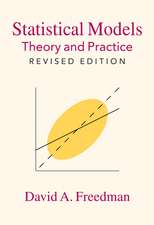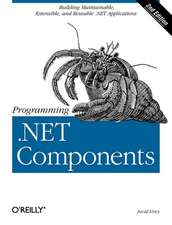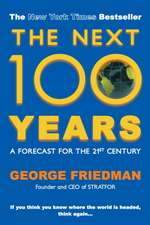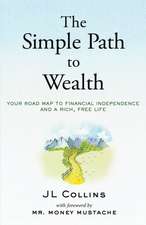The Bed of Procrustes: Philosophical and Practical Aphorisms: Bestsellers Taleb
Autor Nassim Nicholas Taleben Limba Engleză Paperback – 26 oct 2016
Second edition, revised and expanded
Why are we so often unwilling to accept that life is unpredictable? In this brilliant book Nassim Nicholas Taleb distils his idiosyncratic wisdom to demolish our illusions, contrasting the classical values of courage, elegance and erudition against modern philistinism and phoniness. Only by accepting what we don't know, he shows, can we see the world as it really is.
| Toate formatele și edițiile | Preț | Express |
|---|---|---|
| Paperback (2) | 56.55 lei 21-33 zile | +17.77 lei 6-12 zile |
| Penguin Books – 26 oct 2016 | 56.55 lei 21-33 zile | +17.77 lei 6-12 zile |
| Random House LLC US – 25 oct 2016 | 108.92 lei 17-24 zile | +9.44 lei 6-12 zile |
| Hardback (1) | 135.11 lei 3-5 săpt. | |
| Random House – 31 oct 2010 | 135.11 lei 3-5 săpt. |
Preț: 56.55 lei
Preț vechi: 68.66 lei
-18% Nou
10.82€ • 11.57$ • 9.02£
Carte disponibilă
Livrare economică 28 martie-09 aprilie
Livrare express 13-19 martie pentru 27.76 lei
Specificații
ISBN-10: 014198502X
Pagini: 176
Dimensiuni: 129 x 198 x 10 mm
Greutate: 0.14 kg
Editura: Penguin Books
Colecția Penguin
Seria Bestsellers Taleb
Locul publicării:London, United Kingdom
Notă biografică
Nassim Nicholas Taleb is an uncompromizing no-nonsense thinker for our times. He has spent his life immersing himself in problems of luck, uncertainty, probability, and knowledge, and he has led three high-profile careers around his ideas, as a man of letters, as a businessman-trader, and as a university professor and researcher. He is currently Distinguished Professor of Risk Engineering at New York University's School of Engineering. He is the author of the 4-volume INCERTO (Antifragile, The Black Swan, Fooled by Randomness, and The Bed of Procrustes). Taleb refuses all awards and honours as they debase knowledge by turning it into competitive sports.
Recenzii
Descriere
A condensed guide to life, Nassim Nicholas Taleb's The Bed of Procrustes is an invaluable collection of aphorisms to help you navigate the modern world.
Second edition, revised and expanded
Why are we so often unwilling to accept that life is unpredictable? In this brilliant book Nassim Nicholas Taleb distils his idiosyncratic wisdom to demolish our illusions, contrasting the classical values of courage, elegance and erudition against modern philistinism and phoniness. Only by accepting what we don't know, he shows, can we see the world as it really is.
Extras
If you want people to read a book, tell them it is overrated. - You never win an argument until they attack your person. - Nothing is more permanent than “temporary” arrangements, deficits, truces, and relationships; and nothing is more temporary than “permanent” ones. - The most painful moments are not those we spend with uninteresting people; rather, they are those spent with uninteresting people trying hard to be interesting. - Hatred is love with a typo somewhere in the computer code, correctable but very hard to find. I wonder whether a bitter enemy would be jealous if he discovered that I hated someone else. - The characteristic feature of the loser is to bemoan, in general terms, mankind’s flaws, biases, contradictions, and irrationality—without exploiting them for fun and profit. - The test of whether you really liked a book is if you reread it (and how many times); the test of whether you really liked someone’s company is if you are ready to meet him again and again—the rest is spin, or that variety of sentiment now called self-esteem. - We ask “why is he rich (or poor)?” not “why isn’t he richer (or poorer)?” “why is the crisis so deep?” not “why isn’t it deeper?” Hatred is much harder to fake than love. You hear of fake love; never of fake hate. - The opposite of manliness isn’t cowardice; it’s technology. - Usually, what we call a “good listener” is someone with skillfully polished indifference. - It is the appearance of inconsistency, and not its absence, that makes people attractive. - You remember emails you sent that were not answered better than emails that you did not answer. People reserve standard compliments for those who do not threaten their pride; the others they often praise by calling “arrogant.” - Since Cato the Elder, a certain type of maturity has shown up when one starts blaming the new generation for “shallowness” and praising the previous one for its “values.” - It is as difficult to avoid bugging others with advice on how to exercise and other health matters as it is to stick to an exercise schedule. - By praising someone for his lack of defects you are also implying his lack of virtues. - When she shouts that what you did was unforgivable, she has already started to forgive you. Being unimaginative is only a problem when you are easily bored. - We call narcissistic those individuals who behave as if they were the central residents of the world; those who do exactly the same in a set of two we call lovers or, better, “blessed by love.” -
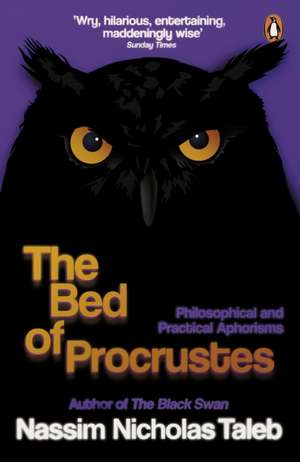





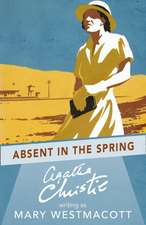
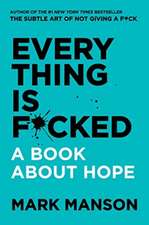

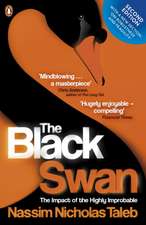

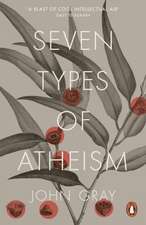




![The Way of Zen =: [Zendao]](https://i0.books-express.ro/bt/9780375705106/the-way-of-zen.jpg)
